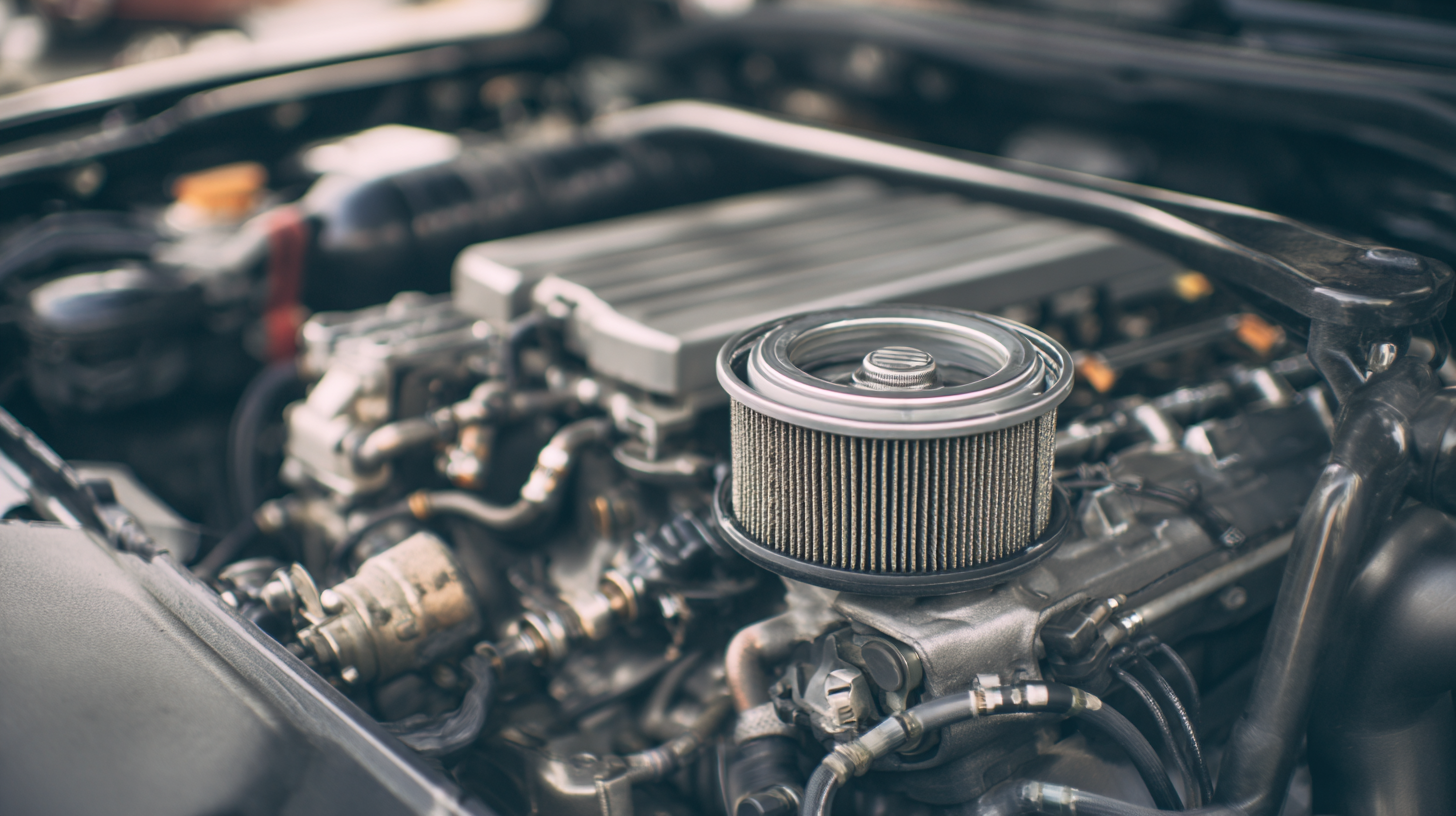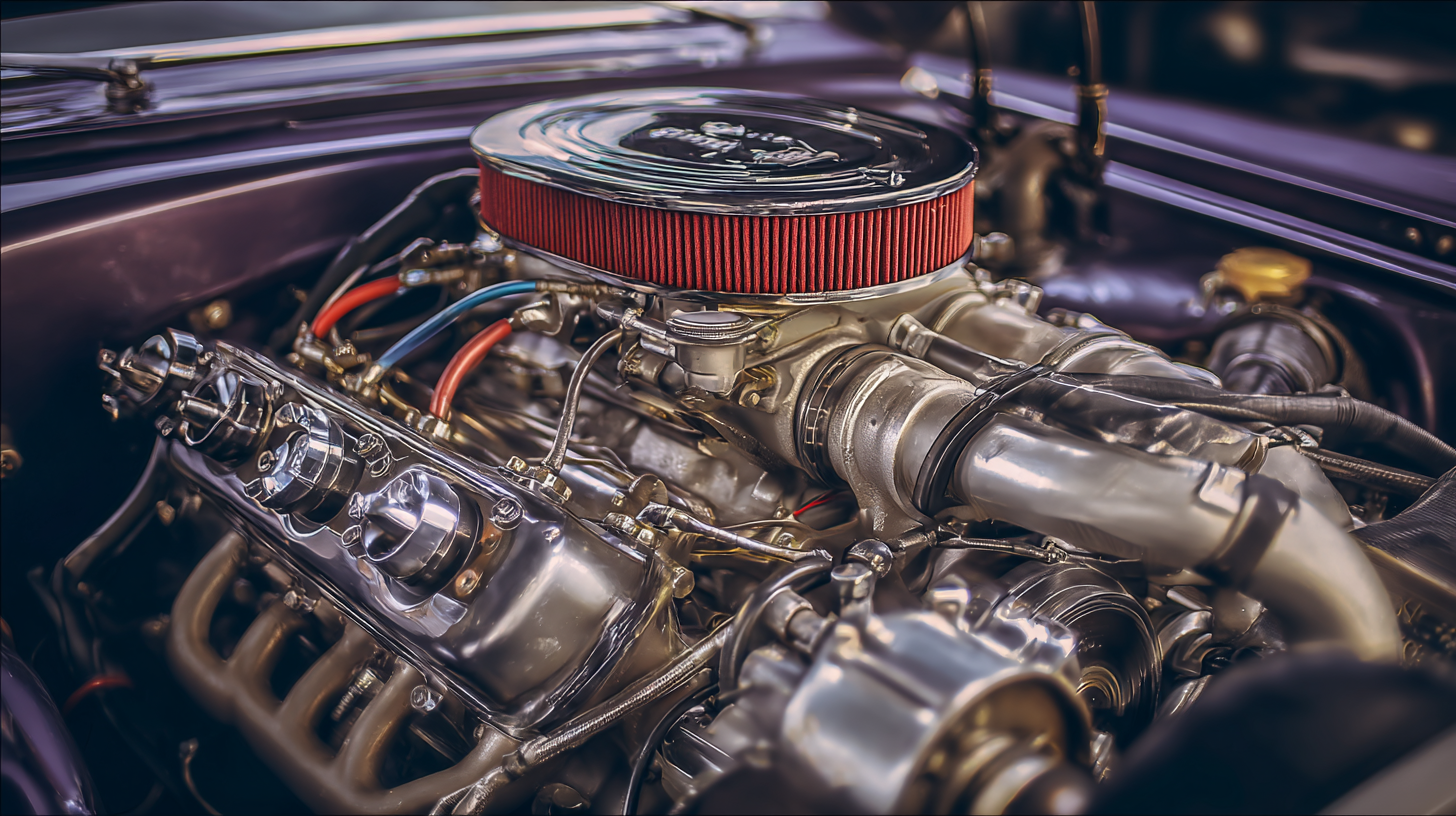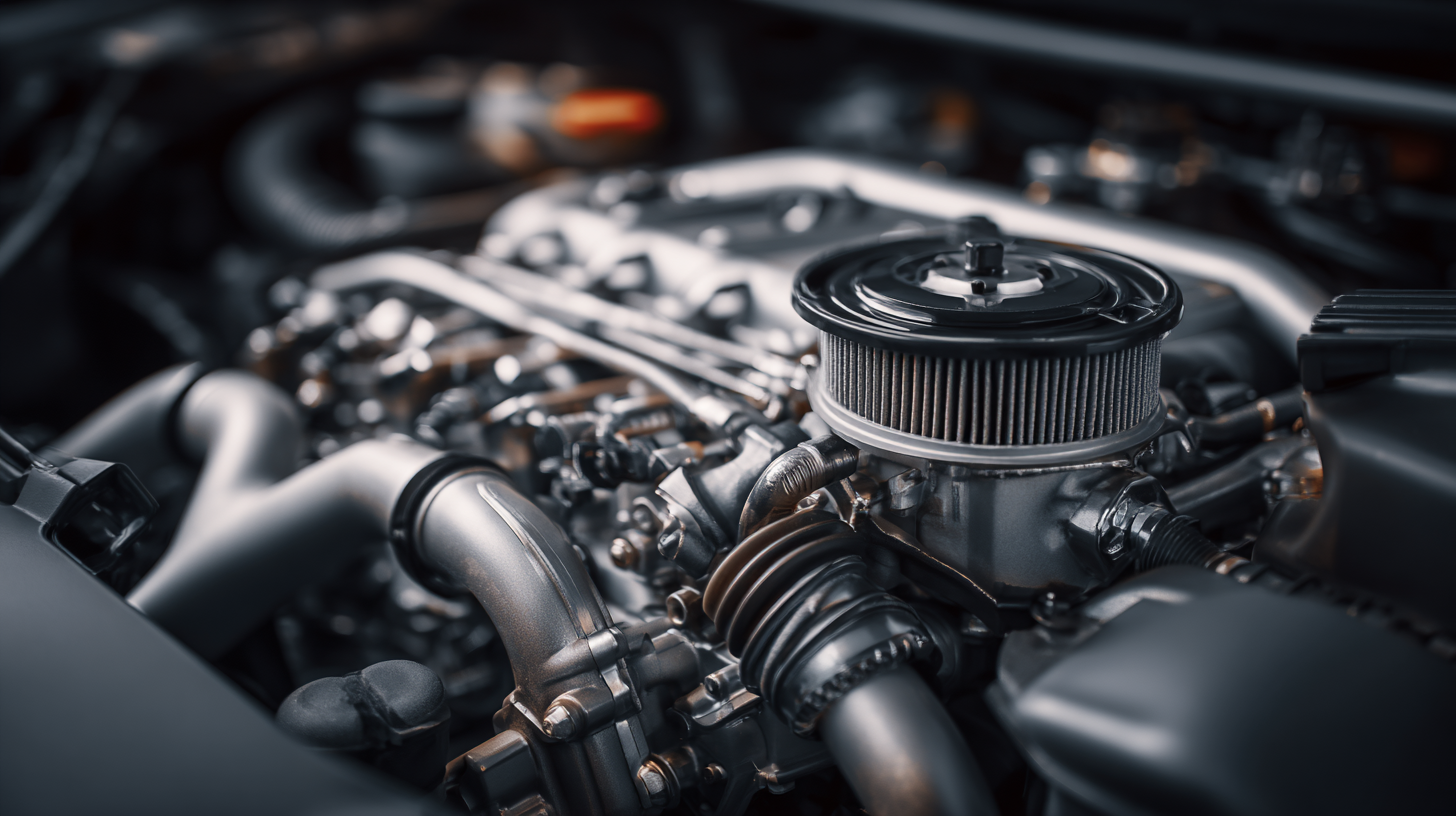When it comes to maintaining your vehicle's performance and longevity, choosing the right Car Engine Filter is paramount. According to a recent report by the International Institute for Vehicle Maintenance, nearly 40% of vehicle owners are unaware of the crucial role that engine filters play in protecting their engines from harmful debris and contaminants. A study conducted by the Automotive Filter Manufacturers Association highlights that high-quality engine filters can improve engine efficiency by up to 10%, which directly impacts fuel consumption and emissions. As vehicles become more advanced and engine technology evolves, selecting the appropriate filter has never been more essential; the market for automotive filters is projected to reach USD 5.2 billion by 2025. This guide aims to demystify the choices available, helping you make informed decisions tailored to your vehicle’s specific requirements.

When it comes to maintaining your vehicle, understanding the different types of car engine filters is crucial. The primary engine filters—oil filters, air filters, fuel filters, and cabin filters—each play a vital role in ensuring optimal engine performance and longevity. According to a report from the Automotive Aftermarket Suppliers Association, approximately 85% of engine wear is caused by contaminants that can be filtered out, highlighting the importance of choosing the right filters for your specific vehicle needs.
Oil filters are designed to trap contaminants in the engine oil and are essential for maintaining oil cleanliness. A study by the Society of Automotive Engineers found that high-efficiency oil filters can remove particles as small as 5 microns, significantly reducing engine wear. Air filters, on the other hand, prevent dust and debris from entering the engine—a critical function as a dirty air filter can decrease engine performance by up to 10%. Additionally, fuel filters are vital in ensuring that fuel reaching the engine is free from impurities, which can otherwise lead to reduced efficiency and costly repairs. Understanding these types can guide vehicle owners in making informed decisions that keep their engines running smoothly.
| Filter Type | Purpose | Replacement Frequency | Cost Range | Recommended For |
|---|---|---|---|---|
| Oil Filter | Removes impurities from engine oil | Every 5,000 - 7,500 miles | $10 - $30 | All vehicles |
| Air Filter | Filters air entering the engine | Every 15,000 - 30,000 miles | $20 - $60 | Passenger cars, trucks |
| Fuel Filter | Cleans fuel before it enters the engine | Every 30,000 - 50,000 miles | $15 - $50 | Gasoline vehicles |
| Cabin Air Filter | Filters air entering the cabin | Every 15,000 - 25,000 miles | $15 - $40 | All vehicles |
| PCV Valve Filter | Regulates crankcase pressure and filters air | Every 30,000 - 50,000 miles | $10 - $25 | Most vehicles |
When choosing the right engine filter for your vehicle, several key factors play a crucial role in ensuring optimal performance and longevity. Firstly, understanding your vehicle's specific make and model is essential. Different engines require different filter sizes and types, whether it's an oil filter, air filter, or fuel filter. Always refer to your owner’s manual or consult with a professional to identify the correct specifications, as using the wrong filter can lead to poor engine performance and increased wear over time.
Another important factor to consider is the quality of the filter material. Engine filters come in various grades, with some engineered for specific performance levels. High-quality filters often feature multi-layer construction that effectively traps contaminants while allowing for adequate airflow and oil flow. Investing in a premium filter may seem more expensive initially but can save you money in the long run by preventing engine damage and improving fuel efficiency. Finally, consider maintenance intervals. Regularly replacing your engine filter as part of your vehicle’s maintenance routine is vital. Following the manufacturer's recommendations will help maintain engine health and enhance overall vehicle performance.
Choosing the right engine filter for your vehicle is crucial for optimal performance, and understanding the specific sizing and specifications is the first step in this process. According to the Automotive Aftermarket Industry Association, about 75% of vehicles on the road today are over five years old, making the maintenance of engine filters even more critical. The right filter can trap contaminants that would otherwise harm engine components, enhancing longevity and efficiency.

To begin, you must check the vehicle owner's manual for the manufacturer's specifications regarding filter size and type. Engine filters come in various sizes and designs, such as cartridge, spin-on, and panel filters, each suited for different engine layouts. The Society of Automotive Engineers (SAE) has recommended that filters be replaced based on both mileage and soil contamination levels, with a common interval ranging from 5,000 to 7,500 miles for regular driving conditions. Regularly assessing the filter's condition and ensuring compatibility with your engine model will lead to improved performance and reduced emissions.
 Maintaining your engine filter is crucial for ensuring optimal performance and extending the lifespan of your vehicle. Regular inspection and timely replacement can significantly reduce engine wear and enhance fuel efficiency. It's essential to follow the manufacturer's recommendations regarding filter change intervals. Typically, this ranges between 12,000 to 15,000 miles, depending on driving conditions. If you often drive in dusty environments or heavy traffic, you might need to inspect and replace your filter even more frequently.
Maintaining your engine filter is crucial for ensuring optimal performance and extending the lifespan of your vehicle. Regular inspection and timely replacement can significantly reduce engine wear and enhance fuel efficiency. It's essential to follow the manufacturer's recommendations regarding filter change intervals. Typically, this ranges between 12,000 to 15,000 miles, depending on driving conditions. If you often drive in dusty environments or heavy traffic, you might need to inspect and replace your filter even more frequently.
In addition to routine replacements, it's wise to check the air intake area and ensure it’s clean and free of debris. A clogged engine filter can restrict airflow, leading to engine strain and reduced performance. When replacing the filter, always choose a high-quality product that matches your vehicle's specifications. Furthermore, using a premium oil filter alongside your engine filter can further enhance the overall health of your engine. By prioritizing these maintenance tips, you can enjoy a smoother ride and keep your engine operating at its best for years to come.
When selecting an engine filter for your vehicle, it's crucial to avoid common mistakes that can lead to decreased performance and potential engine damage. One of the most frequent errors is overlooking the manufacturer’s specifications. According to a recent industry report by the Auto Filter Manufacturers Association (AFMA), using a filter that does not meet the OEM standards can reduce filtration efficiency by up to 60%. Always consult your vehicle’s owner manual to ensure you're choosing a compatible filter.
Another pitfall is assuming that higher-priced filters are always better. While it’s true that some premium options offer enhanced filtration and longevity, many mid-range options perform adequately. A study by the Society of Automotive Engineers (SAE) shows that brands that balance cost and quality can often meet or exceed filtration requirements without the premium price tag.
Tip: When shopping for an engine filter, look for filters that have been tested and certified by independent organizations to ensure quality and performance.
Additionally, neglecting to replace your engine filter regularly can lead to significant problems. The AFMA report indicates that a clogged filter can cause a 10% decrease in fuel efficiency. Setting up a routine maintenance schedule can help you remember when it’s time to check or replace your filter.
Tip: Mark your calendar for engine filter replacement every 15,000 to 30,000 miles, depending on your vehicle and driving conditions, to keep your engine running smoothly.






